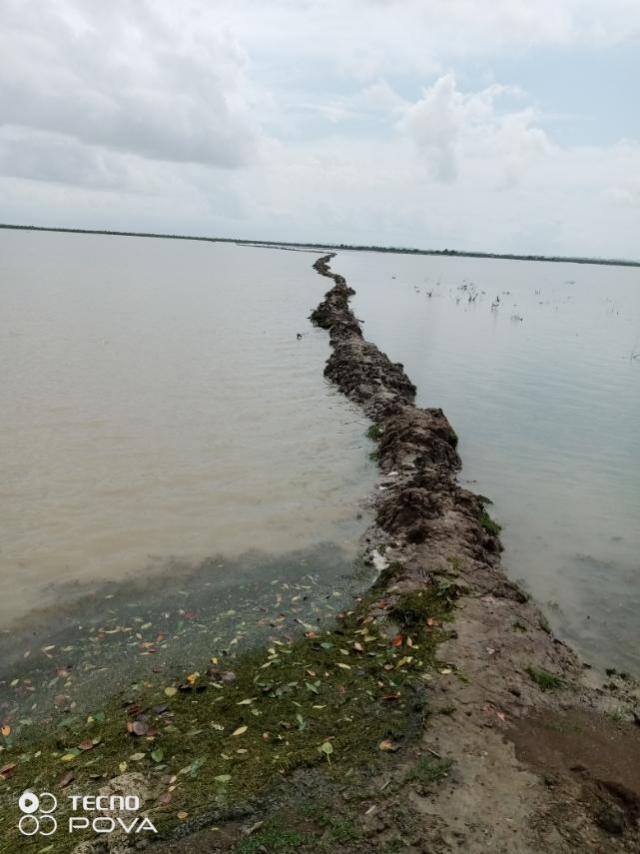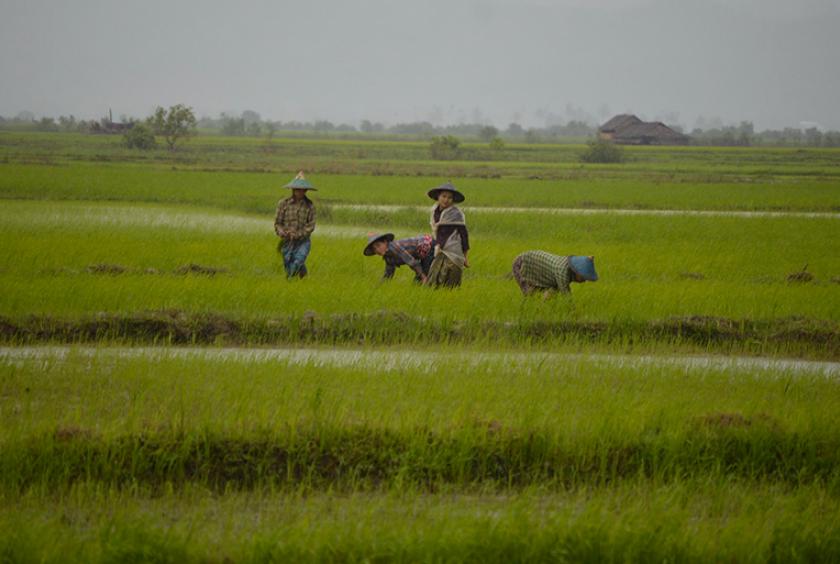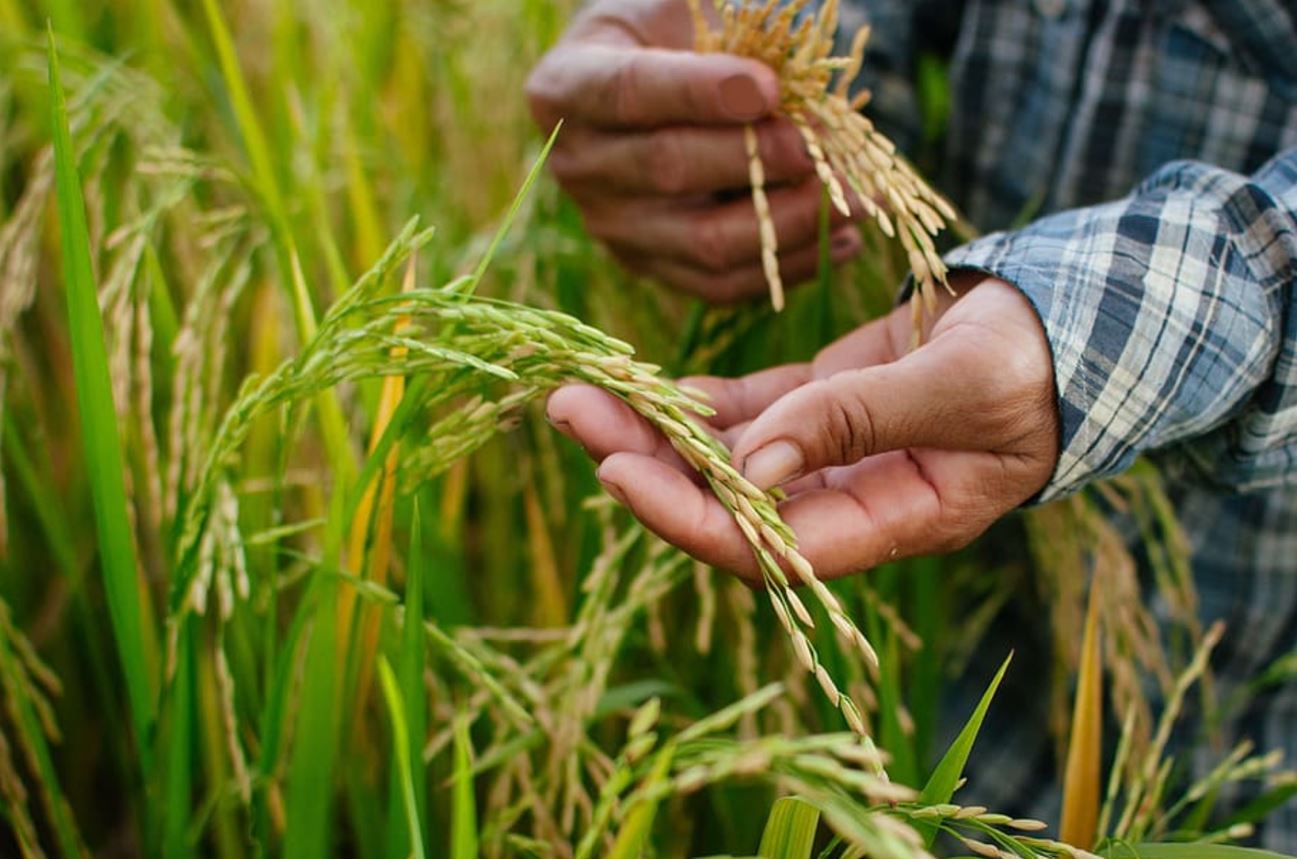CNI News
1 Nov 2022
The storm, which hit Rakhine State on 24th October destroyed about 90,000 acres of f Some 90,000 acres of farmland damaged by storm in Rakhine State armland in eight townships in Rakhine State, according to statistics collected by the All Rakhine State Peasants’ Union.
As a result, 3 million baskets of paddy were destroyed, U Kyaw Zan of the ARSPU told the CNI.
He said, “According to statistics collected by the ARSPU, about 90,000 acres of paddy fields, especially in Taungup, Myaybon, Minbya and Rathedaung were destroyed by the storm on 24th October. The storm also affected farmland in Ann, Kyaukphyu, Pauktaw and Ponnagyun. As a result, between 3 and 3.5 million baskets of paddy were destroyed.”
Due to salt water flooding caused by the storm damaged 20,000 acres of farmland in Taungup.

Salt water flooding in farms in Rakhine State.
As a result, farmers have suffered losses and they need salt-resistant paddy varieties for the upcoming cultivation season, a farmer from Taungup told the CNI.
He said, “In connection with assistance, we need fertilizers as farms were flooded by salt water. Farms were salty and acidified. So, it is difficult for use to grow crops in the upcoming cultivation season and we need fertilizers and salt-resistant paddy varieties. Then, we need chemicals to make soil suitable for cultivation.”
Farmers had to reduce cultivation acreage this year due to higher costs for inputs such as fertilizers, fuel and pesticides while crop yields are likely to fall as they could not use suvvisicent fertilizers. Moreover, farmers had to abandon their farms due to resumption of fighting in Rakhine State.

Farmers.
Under such circumstances, paddy yields are likely to drop in Rakhine State, according to activists for peasants.
As paddy cultivation acreage in the state fell from 850,000 acres last year to 750,000 acres this year, the state will be able to produce about 30 million baskets of paddy during the harvest, according to the peasant union.
As the paddy yield is just enough for local consumption, authorities are required to take systematic measures for self-sufficiency of paddy in the state, according to U Kyaw Zan.
He told the CNI, “If government plans are systematic, Rakhine State is likely to maintain self-sufficiency of rice. Farmers had to borrow money to cultivate paddy, they will not be able to keep the crop by themselves. They will have to sell the crop. If the paddy they harvested is transported by merchants to other main states and regions, local people will not have enough rice to eat.”
Normally, an acre of land in Rakhine state yields 60 baskets of paddy but it is estimated that only about 50 baskets will be yielded from an acre of farm this year due to falls in fertilizer use and droughts.




